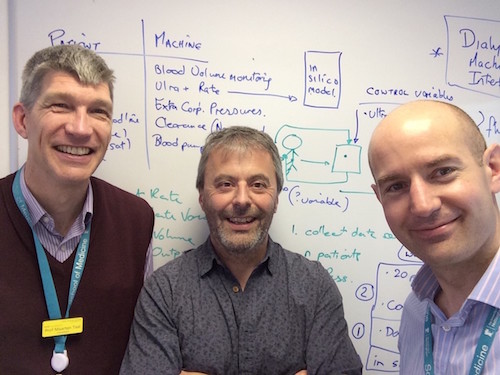Channels
Special Offers & Promotions
New Research Combines Medicine and Engineering to Improve Quality of Life for Patients with Kidney Failure

A new Derby-based, collaborative research project, which combines medicine and engineering, could improve the lives of thousands of people worldwide who are dependent on dialysis.
The Institute for Innovation in Sustainable Engineering (IISE) at the University of Derby has secured a prestigious £600,000 research grant from The MStart Trust, a Derby-based charity, to deliver the project.
Positive long-term outcomes for patients on dialysis are significantly compromised by blood pressure instability during treatments, which can reduce their quality of life.
The iTREND (Intelligent Technologies for Renal Dialysis and Diagnostics) project will develop sensor, data analysis and clinical interventions to improve the outcomes of patients receiving kidney dialysis treatment. The research will be undertaken at the Royal Derby Hospital.
The three-year multidisciplinary project is led by IISE’s Chair in Energy and Environment, Professor Paul Stewart, in collaboration with Professor of Medicine, Maarten Taal, and Dr Nick Selby, Associate Professor of Nephrology, from the University of Nottingham, who are both Honorary Consultant Nephrologists at Royal Derby Hospital.
The prime objective of this project will be to develop computational and technology hardware combined with best-practice solutions applied to the dialysis procedure to make significant improvements to patient outcomes and quality of life.
Professor Taal and Dr Selby said: “The best treatment for irreversible kidney failure is a kidney transplant, but unfortunately many people are not suitable for a transplant for medical reasons. Those who are suitable have to wait on average three years due to lack of donor kidneys.
“Dialysis can treat kidney failure and prolong life but unfortunately it also puts stress on other organs, in particular the heart. There is therefore a great need for technological innovations that will help deliver dialysis without causing stress to the rest of the body.
“We are excited to have the opportunity to combine medical and engineering expertise to develop innovative solutions that could improve the lives of many thousands of people who need dialysis worldwide.”
Professor Stewart added: “This is a great opportunity for researchers from very different disciplines to work together on research which promises real impact and better quality of life for patients with kidney failure.”
All findings and outcomes from the project will be freely available to benefit the medical research community.
more about university of derby
Media Partners


